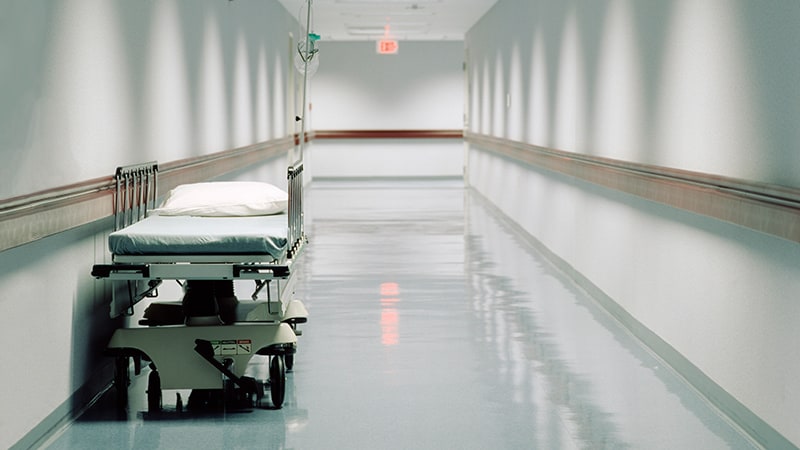Sexual side effects during or after breast cancer are common—and not so fun to deal with. And when you’re ready, it’s something you can tackle together with your partner.
Here, sexual health experts go over some common ways that breast cancer may affect your sex life and what you can do about it. Consider this the first step toward reclaiming your sexuality.
Why am I experiencing sexual side effects with breast cancer?
They may be treatment side effects. “Many of the treatments that we use for breast cancer put women into menopause or intensify menopausal symptoms if they’ve already gone through it,” says Sharon Bober, PhD, director of the Sexual Health Program at the Dana-Farber Cancer Institute.
That’s because these treatments block estrogen, resulting in:
- Vaginal dryness
- Loss of libido
- Dampened enjoyment
- Pain during sex
If you’re experiencing sexual side effects that are interfering with intimacy, communicate openly with your partner. “If you’ve never had to talk about your sex life before, you may not be sure how to start the conversation. Take your time and say to your partner, ‘I know things aren’t the way that they used to be. Can we find some time to talk about it?’” Bober says.
Figure out what challenges you want to work on, and look at them from a whole-body perspective, she says.
Why am I experiencing vaginal dryness, and what can I do about it?
Vaginal dryness and discomfort are common in women undergoing estrogen-inhibiting treatments, says Kristen Carpenter, PhD, director of Women’s Behavioral Health at The Ohio State University Wexner Medical Center. Decreased estrogen levels impair the vaginal lubrication that occurs when you’re sexually aroused, plus vaginal tissue loses volume, becoming more delicate and less elastic.
To minimize discomfort, Carpenter recommends using a non-hormonal vaginal moisturizer for regular maintenance, along with a lubricant during sexual activity (both are available over the counter). In other words, lube up for a healthy flow of fluids.
If this combination doesn’t do the trick, a local estrogen cream may be useful, Bober says. “For vaginal dryness, we know that vaginal estrogen and vaginal DHEA are very effective. These are medications that you can speak with your oncologist or gynecologist about that are often used even after breast cancer,” Bober says.
What can I do about pain that’s not easily resolved?
Be open with your care team about any sexual pain that isn’t resolved with the use of a vaginal lubricant and moisturizer. If you have residual pain from surgery or cancer treatment, pelvic floor physical therapy is often recommended. It should be a key part of any breast cancer survivor plan of care, says Heather Jeffcoat, DPT, president-elect of the Academy of Pelvic Health Physical Therapy.
You can also try these tips from the American Cancer Society:
- If sex hurts, it can help to slow it down.
- Try new positions so that penetration is less deep.
- If your muscles clench during sex, a pelvic floor therapist can teach you relaxation techniques, and may suggest the use of a dilator to stretch the vagina, as well as Kegel exercises.
- For pain that occurs elsewhere, such as your lower back or hips, try supporting the area with pillows and try to focus on receiving pleasure.
Is it possible to revitalize a low libido?
When you’re tired and in pain, it’s no surprise it’s really hard to summon the desire for sex, so Carpenter suggests scheduling time for sexual contact in order to make it part of a regular routine.
Give yourself time to relearn your body and what it likes and needs now. “When patients are complaining of low libido, we make sure that sexual contact is enjoyable and satisfying for them. We work on the patient’s understanding of how she might like to be touched and relearning her body as it has changed. We work on communication skills so that they can convey this new information to their partner. That way, when sexual instances do occur, they are rewarding and satisfying,” Carpenter says.
How can I learn to love my new body?
“Many women who experience breast cancer leave the experience feeling like their body has betrayed them. They will see the effects of their cancer every day when they look in the mirror, whether they’ve had a lumpectomy, whether they’ve had a mastectomy, and whether or not they had reconstruction. There will be clear reminders of that experience even long after surgical recovery,” Carpenter says.
If you’re uncomfortable in your new body, Carpenter recommends doing things that made you feel good about yourself before cancer that you may have given up, like buying flattering clothes, putting makeup on, having your hair and nails done, and starting back up your exercise regime.
And, there is even more support out there for you on your road to sexual health if you feel like you need it. Reach out to your medical team, or consider joining a support group, such as the American Cancer Society Reach to Recovery Program.
Note: This article have been indexed to our site. We do not claim legitimacy, ownership or copyright of any of the content above. To see the article at original source Click Here













